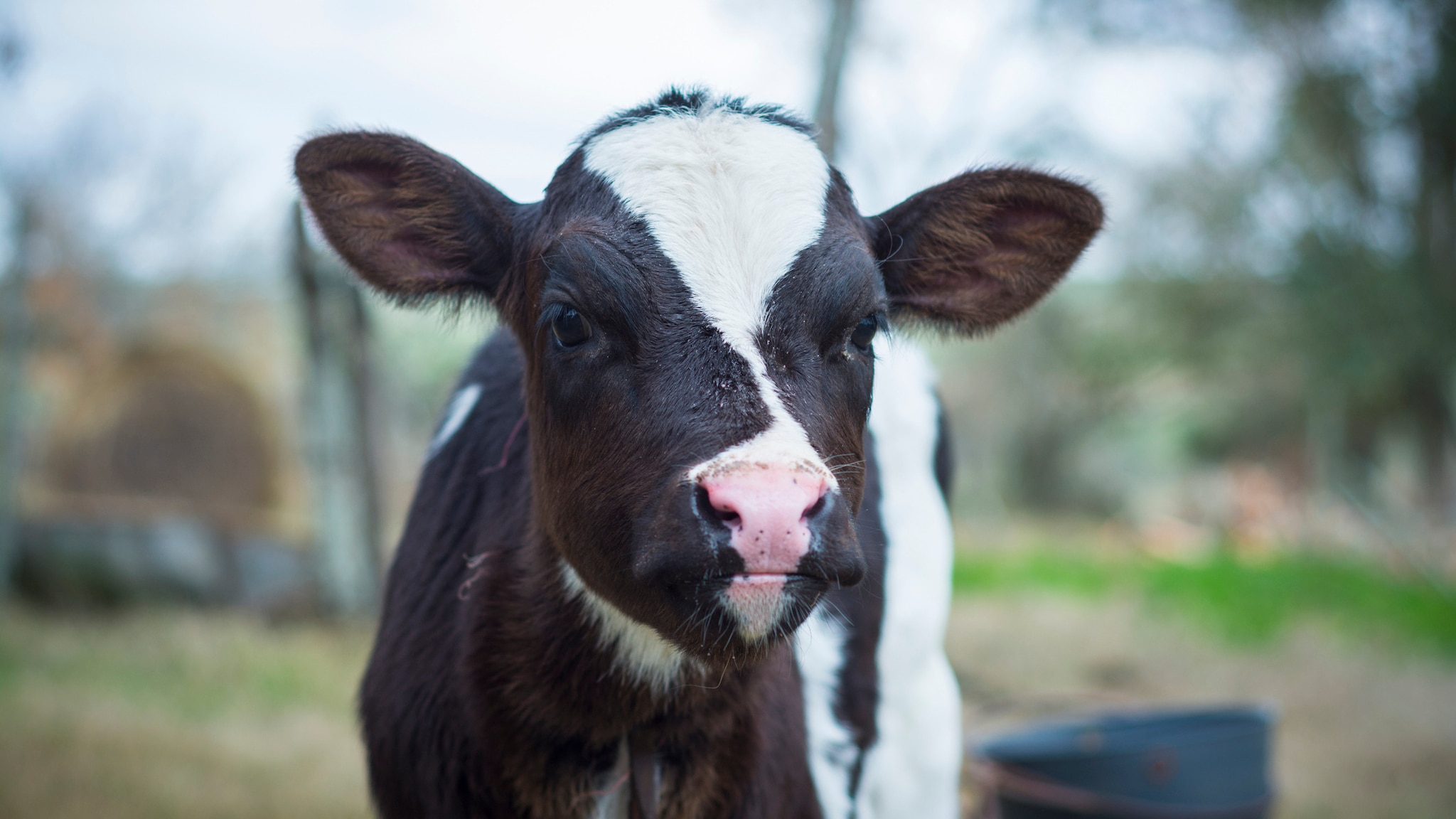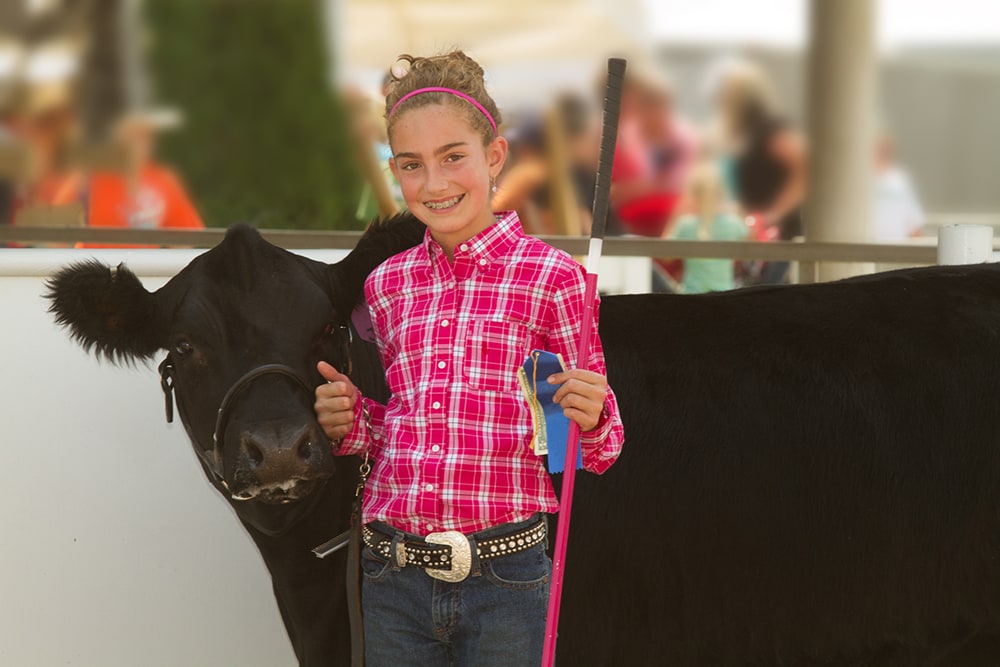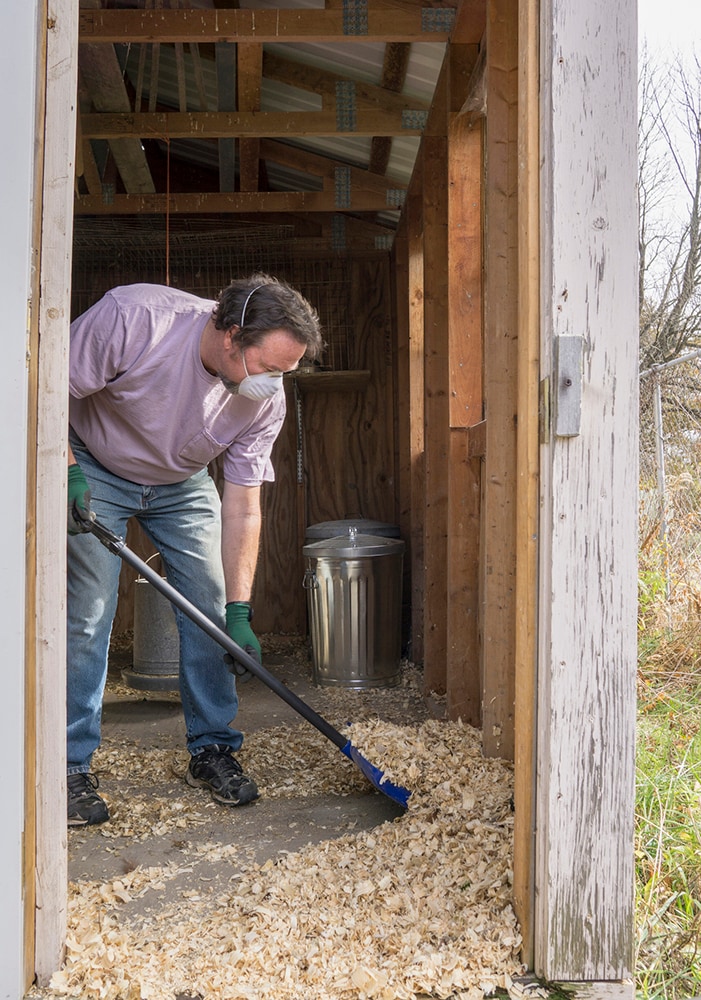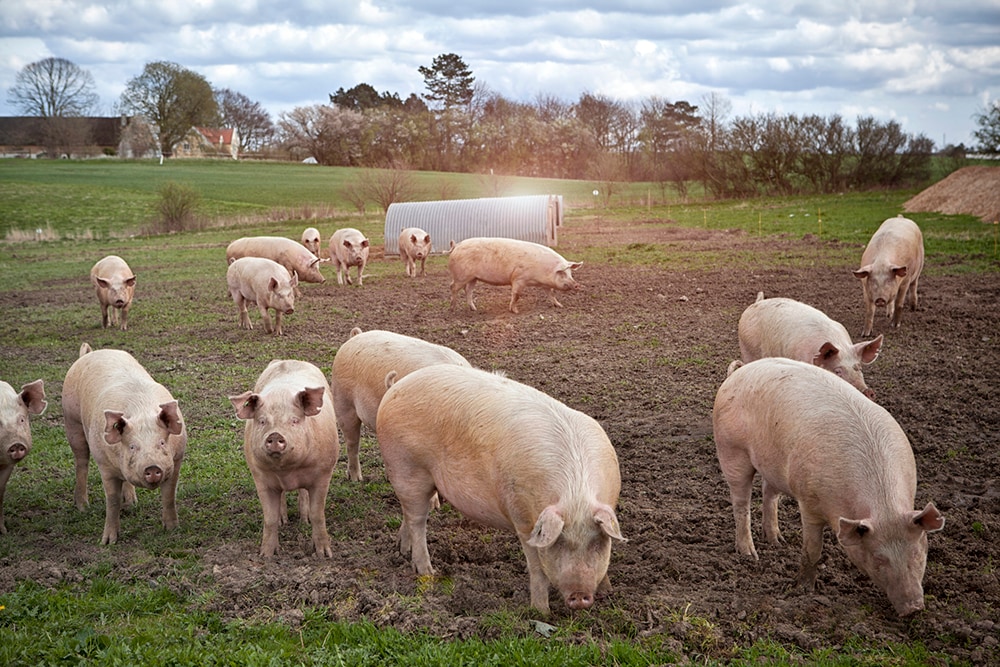What to know
- Farm animals can sometimes carry germs that can cause a variety of illnesses in people.
- Wash your hands after touching or being around farm animals to prevent the spread of disease.
- Wear dedicated shoes when around animals and keep them outside your home.
- Keep farm animals healthy to prevent the spread of disease.

Overview
Interacting with farm animals or livestock can provide education, entertainment, and in many cases a livelihood. Common farm animals may include cattle, sheep, pigs, goats, llamas, and alpacas.
Many people will only see farm animals at petting zoos or on farm visits. For others, work with farm animals is a career, lifestyle, or tradition.
Some types of farm animals are increasingly being treated like pets or used in settings outside the farm. For example, pigs and goats may be used in activities like yoga. However, it's important to remember that these animals are livestock. They are not meant to live inside the home or be kept indoors. This increases the risk of illness in people.
Recent outbreaks
Diseases
Below is a list of diseases that farm animals can spread.
- Anthrax
- Bovine tuberculosis
- Brucellosis
- Campylobacter infection
- Dermatophilosis (Lumpy wool, strawberry foot rot, rainscald, rainrot)
- Orf virus (sore mouth infection)
- Cryptosporidiosis
- E. coli infection
- Influenza
- Leptospirosis
- Listeria infection
- MRSA
- Q fever
- Rabies
- Ringworm
- Salmonella infection
- Vesicular stomatitis
How to stay healthy around farm animals

Wash your hands
Washing hands with soap and water is the best way to get rid of germs in most situations. Use an alcohol-based hand sanitizer that contains at least 60% alcohol if soap and water are not readily available.
Wash your hands with soap and running water after:
- Contact with animal body fluids like saliva, birthing tissue or fluid.
- Contact with animal products like milk and eggs.
- Cleaning up animal stalls or feces (poop).
- Handling animal food, supplies, bowls, or equipment.
- Touching items used on the farm like fences, buckets.
Adults should supervise hand washing for children under 5 years of age.
Protect yourself while caring for farm animals
Be aware that animals can still spread germs even if they look healthy and clean. Consider the following recommendations if you work with farm animals.
Wear protective equipment
Always wear protective equipment such as masks, gloves, and boots when performing activities that involve touching bodily fluids from animals. This includes cleaning animal stalls or assisting an animal in giving birth.
Cover open wounds or cuts when visiting or working around farm animals.
Use dedicated shoes and clothes
Have dedicated shoes and gloves that you only use when working with your animals. Keep and store these items outside of your home.
If you visit another farm, be sure to scrub your shoes and change your clothes. Do this before interacting with their animals and before coming back to your animals.

Prevent bites and kicks
Germs can spread from bites and scratches, even if the wound does not seem deep or serious.
Be cautious when around farm animals. Always be aware of your surroundings and know where animals and escape routes are at all times. Avoid standing directly behind or approaching farm animals from the rear. This applies even when the animal stands in stocks or is restrained.
Children's safety
Supervise children around farm animals so the child does not get injured. Teach children about farm animal safety including keeping fingers away from the mouth and not approaching an animal from behind.
What to do if you are bitten, scratched, or kicked by a farm animal
Bites and scratches can become infected, even if the wound does not seem deep or serious. Being kicked by an animal can result in serious injury. If kicked by an animal, move away from the animal as quickly as possible. Seek medical attention, especially if you were kicked in the head.
To prevent infection from bites and scratches:
Wash wounds with soap and warm water immediately.
Seek medical attention if:
- The wound or injury is serious.
- The wound or site of injury becomes red, painful, warm, or swollen.
- It has been more than 5 years since your last tetanus shot.
A wound or injury is considered if there is uncontrolled bleeding, inability to move, or are in extreme pain. Additionally, showing muscle or bone, or a bite is over a joint are other indicators of a serious injury.
Stay healthy at petting zoos and animal exhibits
Wash your hands thoroughly with soap and water immediately after touching farm animals or anything in the habitat.
- Avoid touching your mouth before washing your hands.
- Adults should supervise hand washing for young children.
- Use hand sanitizer if soap and water are not readily available.
- Wash hands after removing clothes and shoes.
Supervise children when they are around farm animals
Prevent hand-to-mouth activities, such as nail biting, finger sucking, and eating dirt. Help children wash hands well with soap after interaction with any farm animal.
Do not let children stand behind animals, grab their tails, or put their fingers near an animal's mouth. This can lead to serious injury if the animal bites, scratches, or kicks. Do not let children under 5 years old handle or touch chicks, ducklings, or live poultry.
Do not bring baby or children's items (for example, toys, pacifiers, spill-proof cups, baby bottles, strollers) into animal areas.
Do not eat food or drink beverages in animal areas or where animals are allowed to roam.
How to keep farm animals healthy

Keep farm animals safe and clean
Keep farm animals in an appropriately sized enclosed area at night. This will decrease their exposure to wild animals that could transmit rabies or other diseases.
Use elevated feeders and store feed off the ground. This will help keep pests like mice and rats away.
Properly dispose of soiled bedding and spoiled, expired, or uneaten food so it doesn't make your animals sick.
Clean farm animal enclosures and stalls frequently. Wear protective equipment while cleaning (for example, boots, gloves, and mask).
Monitor your animals' health
Make sure your livestock stay updated on vaccinations. Talk to your veterinarian about what vaccinations they recommend for your animals. Several vaccinations are available for livestock, including for brucellosis, leptospirosis, and rabies.
Schedule routine veterinary exams to keep your farm animals healthy and to prevent infectious diseases and internal and external parasites. Make sure any other animals living on the farm receive routine veterinary care, flea and tick prevention, and vaccinations too. This includes dogs and cats.
Contact your veterinarian if you notice any signs of illness in your animals. Keep in mind that even animals that look healthy can still sometimes spread germs to people and other animals.
Resources
Selecting and caring for farm animals
- Animal Health (US Department of Agriculture)
- USDA Defend the Flock Program
Personal stories
- Sick Kids, Dairy Calves, and Antibiotics that Don't Work: Dr. Megin Nichols's Story
- Baby Chicks and Salmonella: Tyler's Story
Educational Materials
- Wash Hands When Leaving Animal Exhibits (poster)
- Always wash your hands after handling live poultry (sticker)
- Influenza and Zoonoses Education among Youth in Agriculture Program – Resource Repository
Podcasts
- I Love Petting Zoos!
- Things You Can Do to Stay Away from the Flu
- Wash Your Hands If You Pet That Bunny
- Got Milk?
- Prion Disease: Learn the Facts. Avoid Exposure
- I Never Get the Flu
